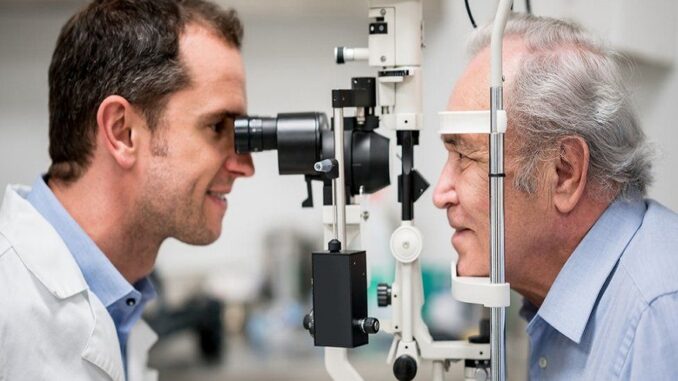
The time required for eye tests will vary based on age and complexity. However, in most circumstances, an eye exam will take at least 20 to 30 minutes.
Your vision is valuable, and frequent check-ups with your optometrist will help protect and preserve it by monitoring your overall eye health. While a standard eye exam can take up to 30 minutes, more extensive tests or follow-up consultations may be necessary for an optometrist to acquire a more in-depth understanding of your eye health.
How Often Should You Get an Eye Exam?
Your eyes should be evaluated at least every two years or more regularly if your optometrist recommends it. If you have an eye issue, such as cataracts or macular degeneration, your doctor may recommend more frequent eye exams. This allows your optometrist to monitor your eye health and vision and assist you with any changes.
You may also need to have your eyes tested more frequently if you have a family history of glaucoma or if you notice frequent visual changes as you get older.
Children can have their eyes tested at any age, even if they cannot read letters, and it is suggested that they see an optometrist before beginning school and learning to read. Many areas of visual development will be completed by eight, so it’s critical to catch any vision abnormalities early.
What Happens During an Eye Exam?
Eye examinations are simple and painless. They enable the optometrist to inspect the exterior and interior of your eye, determining whether you have any vision abnormalities or eye health issues.
What to anticipate:
First, your optometrist will ask if you are there for a standard check-up or if you have any specific eye concerns. If you have any concerns, you will be questioned further about your symptoms and how long you have had them.
You’ll be questioned about your overall health, such as any medications you’re taking and whether you have a family history of eye problems.
Your optometrist will run various tests to assess various elements of your vision and eye health.
The optometrist will test your visual acuity with a Snellen chart (eye chart) by asking you to read random letters on the chart that become smaller line by line.
Refraction: A refraction test will establish if you need glasses or contact lenses. This is accomplished by holding a succession of lenses in front of your eyes while reading the letters on the Snellen chart to discover which lens makes them easiest to view.
Pupils: The optometrist will check your pupils with a penlight to see how they constrict when exposed to light.
Eye muscles: To test your eye muscles, the optometrist will ask you to look in different directions, either at a penlight or another small object. In some situations, they may examine your peripheral and three-dimensional vision (stereopsis).
External exam: The optometrist will check your eyelids, cornea, conjunctiva, sclera, and iris – the front portions of your eye – with a magnification device called a slit lamp.
Internal examination: You may be given eye drops to dilate your pupils as part of your examination. If the pupils are small, the optometrist can examine the structures at the back of the eye, such as the retina and optic nerve, with a special light called
Optometrists can also test colour deficiency using cards with various coloured dots in patterns that represent numerals.
What Can an Eye Test Tell You?
Eye check ups in Singapore are used for much more than just determining how keen your eyesight is. A frequent eye exam will detect early indications of eye disease and keep you up to date on the latest products and therapies that can help you with these problems.
A routine eye exam can aid in the detection of the following medical issues:
Cataracts
Diabetes
Glaucoma (increased pressure in the eye)
Blood pressure is high.
Changes in the primary vision
High cholesterol levels
Regular eye exams are about much more than how well you think you can see because the health of your eyes can provide priceless insight into the health of your body.

Leave a Reply